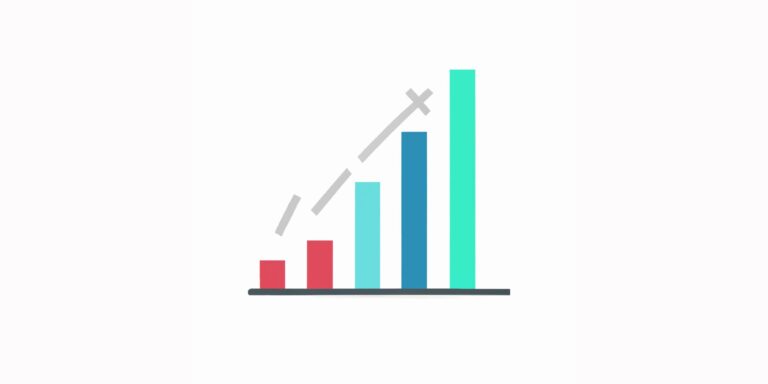Table of Contents
Search engine optimization (SEO) can be a daunting task for any digital marketer. With more and more businesses competing to achieve higher rankings, it’s essential to use all the tools available to stand out from the crowd.
One of those tools is data analytics, which can provide invaluable insights into what strategies are most effective at improving SEO rankings. By leveraging data analytics, marketers can refine their approach and maximize their chances of success with search engine results pages (SERPs).
This article will explore why data analytics is so important in SEO efforts and how it can help you optimize your content for maximum visibility online.
Identifying Keywords and Analyzing Performance
Identifying the right keywords and analyzing their performance is essential for refining your SEO approach. To successfully do this, you need to know which words to target and how successful they are in terms of ranking.
The best way to identify these keywords is by researching what people are searching for on the internet–this can be done through tools like Google Trends or keyword research platforms such as SEMrush. Once you have identified the most relevant keywords, it’s time to analyze their performance.
This can be done by looking at metrics such as click-through rate (CTR), bounce rate, average session duration, and page visits per session which will give you an indication of how successful each keyword has been over some time. Additionally, tracking data from organic search results will help you understand if any changes need to be made when optimizing content with those particular keywords in mind.
By implementing a data-driven strategy when selecting and targeting your chosen key phrases, your SEO efforts should result in improved rankings within SERPs (Search Engine Result Pages).
Utilizing SEO Tools to Monitor Traffic and Rankings

Utilizing SEO tools to monitor traffic and rankings can be a great way for businesses to gain insight into how their website is performing. With the help of data analytics, companies can track key performance indicators such as click-through rates, page visits, social media engagement, and more.
Additionally, these metrics can also indicate where you stand in terms of search engine optimization (SEO). By constantly monitoring your SEO progress with the use of these tools, you will be able to make quick adjustments if needed so that your website will rank higher on popular search engines like Google.
These tools are incredibly useful when it comes to understanding what content works best for different audiences and demographics as well as making sure your site remains visible among all other competitors. Utilizing SEO tools enables marketers to refine their approach over time so they can ensure that their efforts are having a positive impact on their overall ranking.
Optimizing Content for Maximum Visibility and Engagement
Optimizing content for maximum visibility and engagement requires a data-driven approach and an understanding of how search engines work. To stay ahead of the competition, you need to use analytics to refine your SEO strategies and improve rankings.
Start by researching relevant keywords that align with your target audience’s interests. Selecting the right mix of keywords will help you create content that is optimized for both users and search engines. This includes creating meta titles and descriptions that accurately reflect the page’s contents while including relevant keywords.
Additionally, focus on producing high-quality content with valuable information to ensure readers are engaged from start to finish. Utilize graphics, videos, or multimedia elements where appropriate as these can also have a positive impact on user engagement stats.
Finally, be sure to check your website’s loading time as this could directly affect its ranking potential — aim for fast loading times so visitors can quickly access what they came looking for without delay!
Evaluating Results & Refining Your Approach

When it comes to evaluating the results of any SEO approach, there are a few key factors that should be taken into account. Firstly, you need to determine whether or not there is an increase in website traffic generated from organic search queries.
This can be measured using analytical tools such as Google Analytics and other tracking software such as Ahrefs. Secondly, you will also want to measure how well your pages rank for specific keywords and phrases on SERPs (Search Engine Result Pages). Lastly, look at user engagement metrics like click-through rate (CTR) and average time spent on the page.
Once you have evaluated the results of your SEO approach, it’s important to refine it where necessary so that improvements can continue to be made to boost rankings further over time. This could involve tweaking existing content or creating new content optimized for target keywords; optimizing meta tags; improving page speed; increasing backlinks from relevant websites; etc.
, all to provide users with an optimal experience when they visit your website via organic search queries.
Conclusion
Data analytics can be a powerful tool for improving your SEO approach and ultimately increasing your website rankings. With data analytics, you can better understand how to optimize your content strategy, identify keywords, create link-building strategies, and track the success of your efforts.
By taking advantage of the insights available in data analytics reports, you can make informed decisions that will help refine your SEO approach and improve rankings over time. Link building is an important factor when it comes to SEO as it helps search engines discover new pages and build authority on certain topics. Ultimately, data analysis provides the necessary insight into what works best for optimizing content marketing campaigns and increasing organic traffic from search engine results pages (SERPs).

